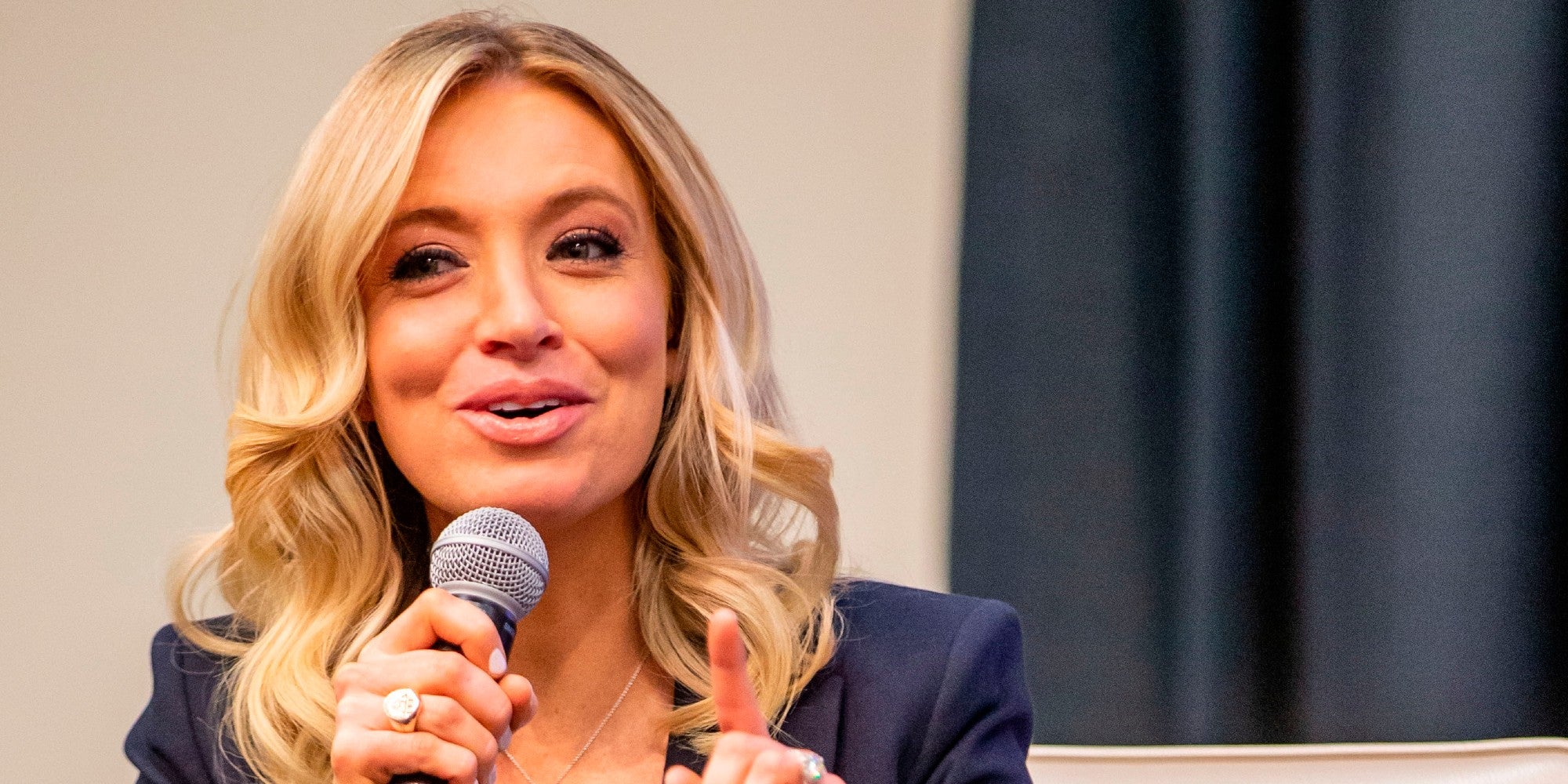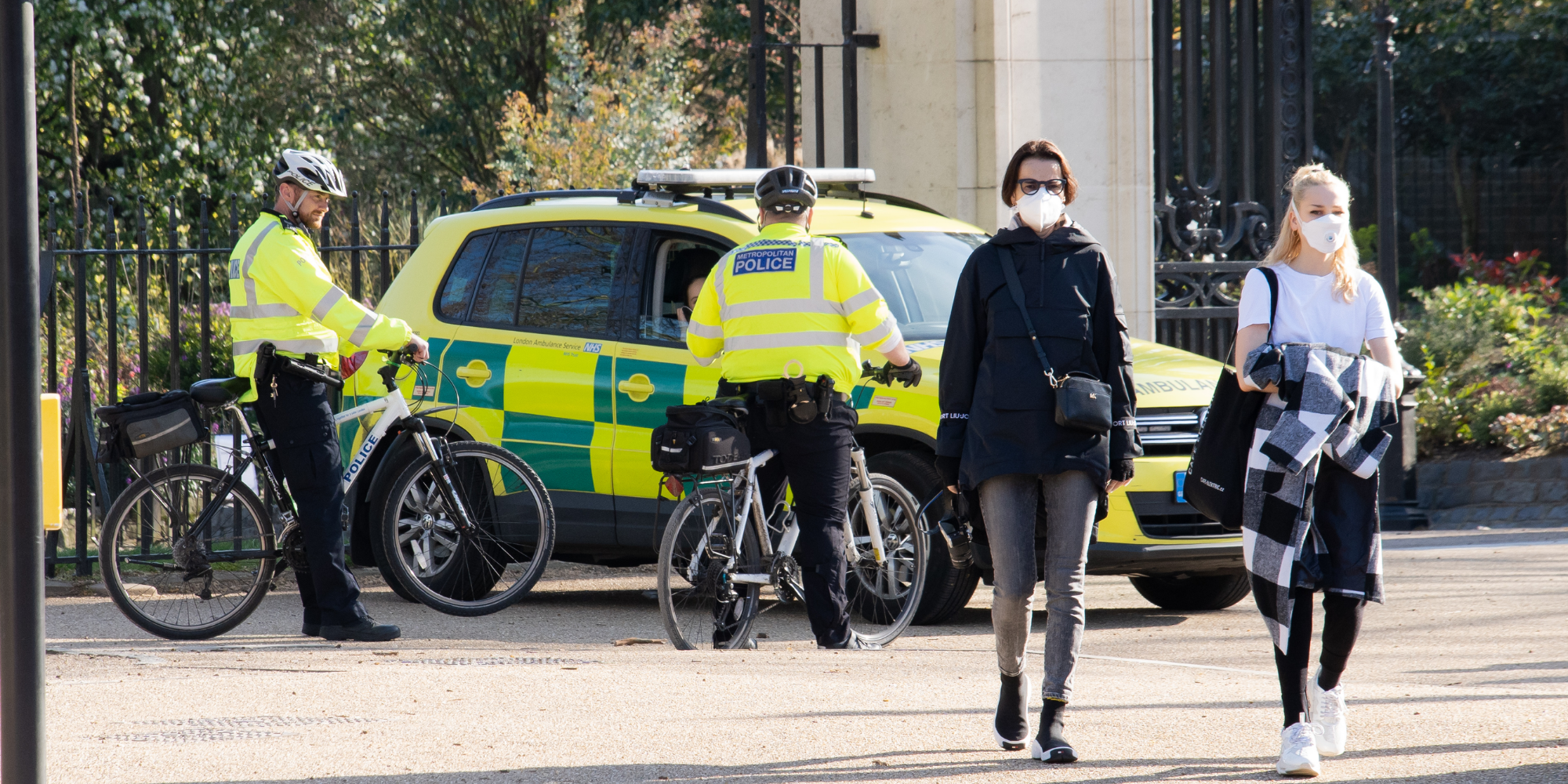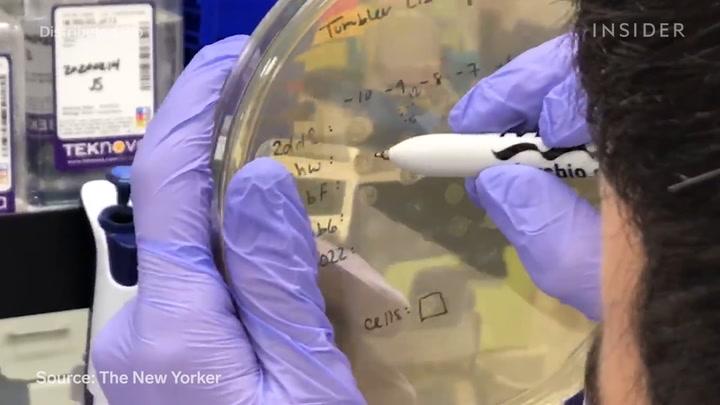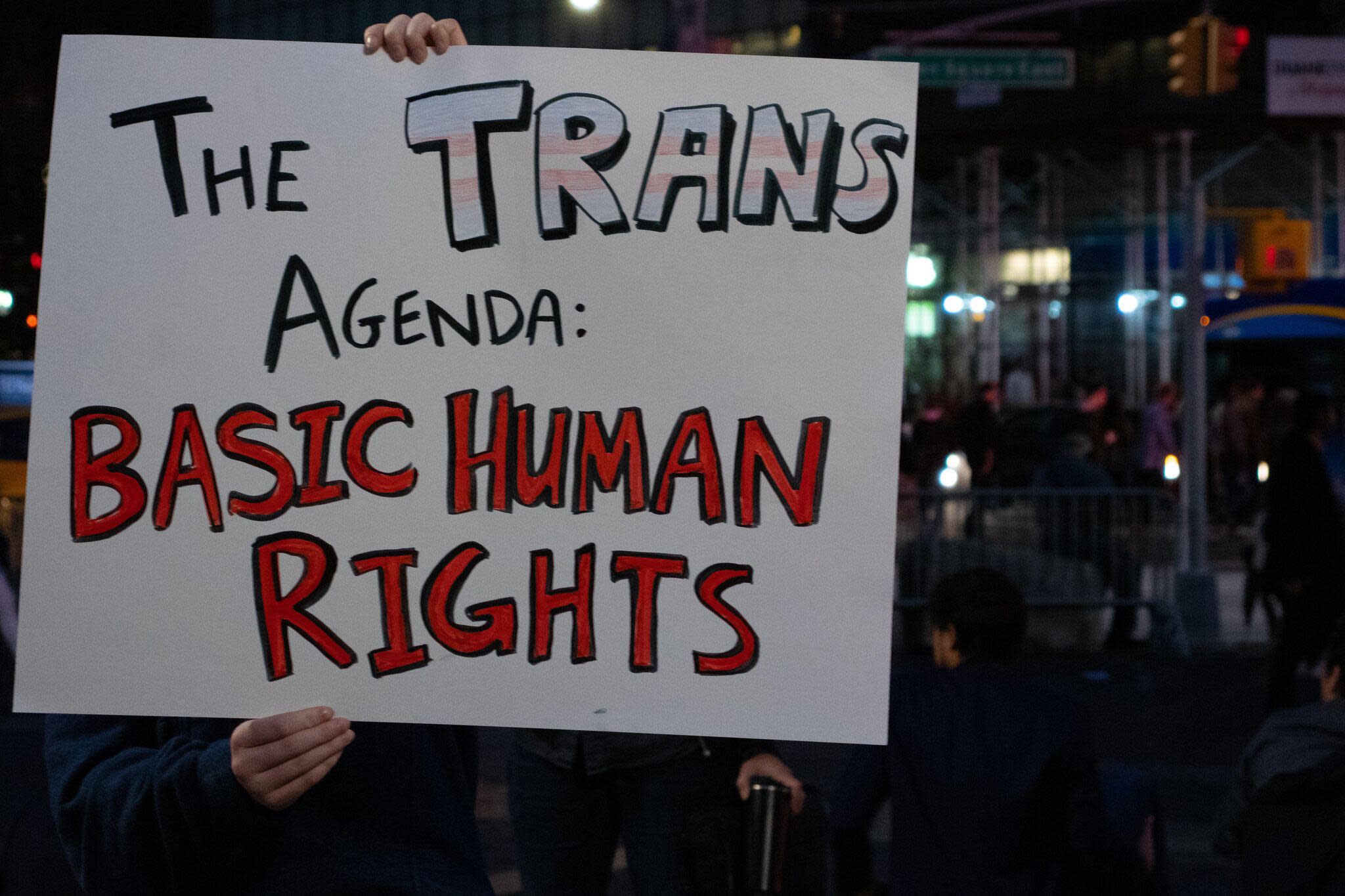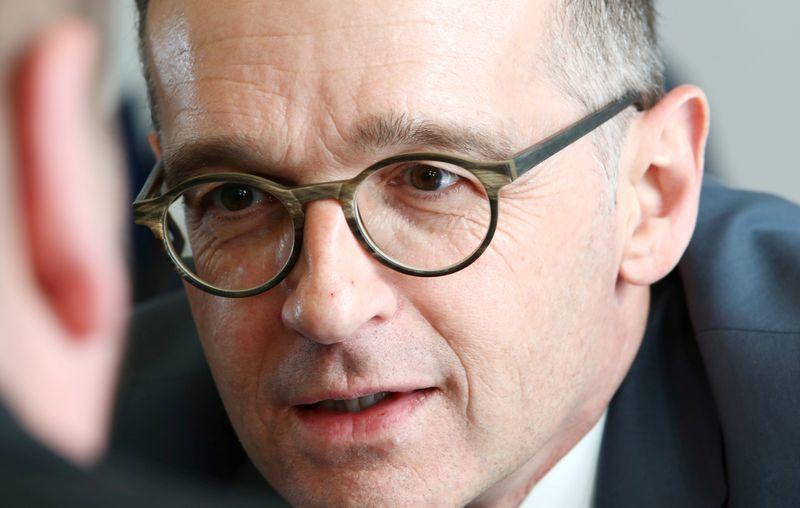BUSINESS INSIDER

Dr. Dean Winslow, an infectious diseases specialist at Stanford Health Care, told Business Insider he doesn't personally use gloves when he's not in a medical setting. He said that if you do choose to use them outside, it's important to take them off in the right way.
Here's a step-by-step guide on how to properly put on, wear, and take off gloves, according to Winslow, the World Health Organization, and the Centers for Disease Control and Prevention
Though less ubiquitous than masks, gloves are becoming more common in public spaces across the US, especially in areas hit harder by the coronavirus.
The World Health Organization's (WHO) recommendation for non-medical professionals is that washing your hands regularly is more effective in preventing the spread of the coronavirus than donning gloves.
The US Centers for Disease Control and Prevention (CDC) only recommends personal protective equipment (PPE) such as gloves for healthcare workers or for those with who have or might have COVID-19, the disease caused by the coronavirus. In guidelines for those caring for COVID-19 patients at home, the CDC's guidelines only mention wearing gloves when touching soiled laundry from the patient.
Still, some people are choosing to wear nitrile or latex gloves in the hope that they may offer some protection from the coronavirus.
DO NOT USE LATEX GLOVES THEY ARE NOT CHEMICAL PROOF, THEY TEAR EASILY AND PEOPLE ARE ALLERGIC TO THE LATEX. WEAR NITIRLE GLOVES, DISPOSABLE OR HEAVY DUTY.
ALSO MAKE SURE YOUR GLOVES ARE ONE SIZE LARGER THAN YOUR HAND SO AS NOT TO BE ON TOO TIGHTLY SO IF YOU WEAR SMALL USE MEDIUM, WEAR MEDIUM USE LARGE ETC.
It's important to properly put on and take off gloves to avoid spreading the virus. Wearers should still follow regular social distancing rules and avoid touching their faces, in the same way that they would if they were not wearing them.
It is also important to note that the most important thing that people can do during this time is to abide by shelter in place orders to the greatest extent possible, according to Dr. Dean Winslow, an infectious diseases specialist at Stanford Health Care. If you have to go outside, Winslow told Business Insider, try to keep a safe distance from other people.
—Jessica Layton (@JLaytonTV) April 2, 2020
Here is what to do to safely put on, wear, and take off gloves as recommended by Winslow, the World Health Organization (WHO), and the Centers for Disease Control and Prevention (CDC). The CDC and WHO guidelines are originally meant for healthcare professionals, not the public.
Step 1: Wash (and dry) your hands before touching the gloves
If there's one thing to emphasize throughout the coronavirus pandemic, and especially when donning and taking off protective gear, it is this: Wash. Your. Hands. As often as possible, as scrupulously as possible, and for at least the recommended 20 seconds outlined by both the CDC and WHO.
People have recommended that an easy way to keep track is to sing the "Happy Birthday" song two times over. NPR recommends a few alternatives for when that gets old (and it will): Beyonce's "Love on Top" chorus is one example and the chorus of Dolly Parton's "Jolene" also does the trick. The New York Times went the extra mile and had lyricists create not one but two hand-washing songs, which were then sent to Broadway actors to perform and upload videos of.
Washing your hands regularly is by far one of the most important things to do during this pandemic, Dr. Winslow told Business Insider. The CDC emphasizes this point and says that because bacteria can easily multiply in moist environments underneath gloves, glove-wearers "should make sure hands are dry before putting on gloves."
Step 2: Put on your gloves carefully
This one is pretty self explanatory.
Step 3: Avoid touching your face while you have your gloves on
Gloves are not a replacement for scrupulous hand washing, like mentioned above, but they might provide wearers with a false sense of security.
The CDC tells wearers that they should limit opportunities for "touch contamination," which means touching potentially contaminated surfaces (think can of beans at the grocery store, light switches, door handles) and then touching non-contaminated surfaces (your face, glasses, nose, etc.)
Also keep in mind that gloves may "have small defects that are hard to see or may be torn during use."
Step 5: Carefully place your used gloves into the garbage
Do not throw them onto the streets of NYC as pictured below.

Some people are choosing to wear gloves in the hope that they may
offer some protection from the coronavirus. Crystal Cox/Business Insider
Some people in areas hit hard by the coronavirus may choose to wear gloves when out in public spaces, like grocery stores or public transportation, where they may have to touch objects that others may have touched as well
Some people in areas hit hard by the coronavirus may choose to wear gloves when out in public spaces, like grocery stores or public transportation, where they may have to touch objects that others may have touched as well
Dr. Dean Winslow, an infectious diseases specialist at Stanford Health Care, told Business Insider he doesn't personally use gloves when he's not in a medical setting. He said that if you do choose to use them outside, it's important to take them off in the right way.
Here's a step-by-step guide on how to properly put on, wear, and take off gloves, according to Winslow, the World Health Organization, and the Centers for Disease Control and Prevention
Though less ubiquitous than masks, gloves are becoming more common in public spaces across the US, especially in areas hit harder by the coronavirus.
The World Health Organization's (WHO) recommendation for non-medical professionals is that washing your hands regularly is more effective in preventing the spread of the coronavirus than donning gloves.
The US Centers for Disease Control and Prevention (CDC) only recommends personal protective equipment (PPE) such as gloves for healthcare workers or for those with who have or might have COVID-19, the disease caused by the coronavirus. In guidelines for those caring for COVID-19 patients at home, the CDC's guidelines only mention wearing gloves when touching soiled laundry from the patient.
Still, some people are choosing to wear nitrile or latex gloves in the hope that they may offer some protection from the coronavirus.
DO NOT USE LATEX GLOVES THEY ARE NOT CHEMICAL PROOF, THEY TEAR EASILY AND PEOPLE ARE ALLERGIC TO THE LATEX. WEAR NITIRLE GLOVES, DISPOSABLE OR HEAVY DUTY.
ALSO MAKE SURE YOUR GLOVES ARE ONE SIZE LARGER THAN YOUR HAND SO AS NOT TO BE ON TOO TIGHTLY SO IF YOU WEAR SMALL USE MEDIUM, WEAR MEDIUM USE LARGE ETC.
It's important to properly put on and take off gloves to avoid spreading the virus. Wearers should still follow regular social distancing rules and avoid touching their faces, in the same way that they would if they were not wearing them.
It is also important to note that the most important thing that people can do during this time is to abide by shelter in place orders to the greatest extent possible, according to Dr. Dean Winslow, an infectious diseases specialist at Stanford Health Care. If you have to go outside, Winslow told Business Insider, try to keep a safe distance from other people.
—Jessica Layton (@JLaytonTV) April 2, 2020
Here is what to do to safely put on, wear, and take off gloves as recommended by Winslow, the World Health Organization (WHO), and the Centers for Disease Control and Prevention (CDC). The CDC and WHO guidelines are originally meant for healthcare professionals, not the public.
Step 1: Wash (and dry) your hands before touching the gloves
If there's one thing to emphasize throughout the coronavirus pandemic, and especially when donning and taking off protective gear, it is this: Wash. Your. Hands. As often as possible, as scrupulously as possible, and for at least the recommended 20 seconds outlined by both the CDC and WHO.
People have recommended that an easy way to keep track is to sing the "Happy Birthday" song two times over. NPR recommends a few alternatives for when that gets old (and it will): Beyonce's "Love on Top" chorus is one example and the chorus of Dolly Parton's "Jolene" also does the trick. The New York Times went the extra mile and had lyricists create not one but two hand-washing songs, which were then sent to Broadway actors to perform and upload videos of.
Washing your hands regularly is by far one of the most important things to do during this pandemic, Dr. Winslow told Business Insider. The CDC emphasizes this point and says that because bacteria can easily multiply in moist environments underneath gloves, glove-wearers "should make sure hands are dry before putting on gloves."
Step 2: Put on your gloves carefully
This one is pretty self explanatory.
Step 3: Avoid touching your face while you have your gloves on
Gloves are not a replacement for scrupulous hand washing, like mentioned above, but they might provide wearers with a false sense of security.
The CDC tells wearers that they should limit opportunities for "touch contamination," which means touching potentially contaminated surfaces (think can of beans at the grocery store, light switches, door handles) and then touching non-contaminated surfaces (your face, glasses, nose, etc.)
Also keep in mind that gloves may "have small defects that are hard to see or may be torn during use."
MOST IMPORTANT STEP
Step 4: Remove your gloves carefully, without touching the outside of the gloves
Here is an excellent step-by-step guide on how to take off gloves without touching the outsides with your hands. Keep in mind that hands easily become contaminated when taking off gloves (CDC) so it's important to be diligent in this last step.
"You should remove your gloves by pinching one from outside with one gloved hand, and using your clean hand to reach inside the glove to remove the other one," Dr. Winslow told Business Insider. "Even after you do that, with good technique, practice good hand hygiene."
Step 4: Remove your gloves carefully, without touching the outside of the gloves
Here is an excellent step-by-step guide on how to take off gloves without touching the outsides with your hands. Keep in mind that hands easily become contaminated when taking off gloves (CDC) so it's important to be diligent in this last step.
"You should remove your gloves by pinching one from outside with one gloved hand, and using your clean hand to reach inside the glove to remove the other one," Dr. Winslow told Business Insider. "Even after you do that, with good technique, practice good hand hygiene."
Step 5: Carefully place your used gloves into the garbage
Do not throw them onto the streets of NYC as pictured below.
Crystal Cox/Business Insider
Step 6: Wash your hands. For 20 seconds. Sing the songs.
If you take away anything from this article it's this: Wash. Your. Hands.
More glove-related resources:
"Important! There's a right way to take off those gloves!" (CBS' Jessica Layton | Twitter)
How to remove gloves (with pictures) (WHO)
Does wearing gloves replace the need for handwashing? (CDC)
PPE Guidance in Healthcare Settings (CDC)
Is wearing rubber gloves while out in the public effective in preventing the new coronavirus infection? (WHO Facebook)
If you take away anything from this article it's this: Wash. Your. Hands.
More glove-related resources:
"Important! There's a right way to take off those gloves!" (CBS' Jessica Layton | Twitter)
How to remove gloves (with pictures) (WHO)
Does wearing gloves replace the need for handwashing? (CDC)
PPE Guidance in Healthcare Settings (CDC)
Is wearing rubber gloves while out in the public effective in preventing the new coronavirus infection? (WHO Facebook)
